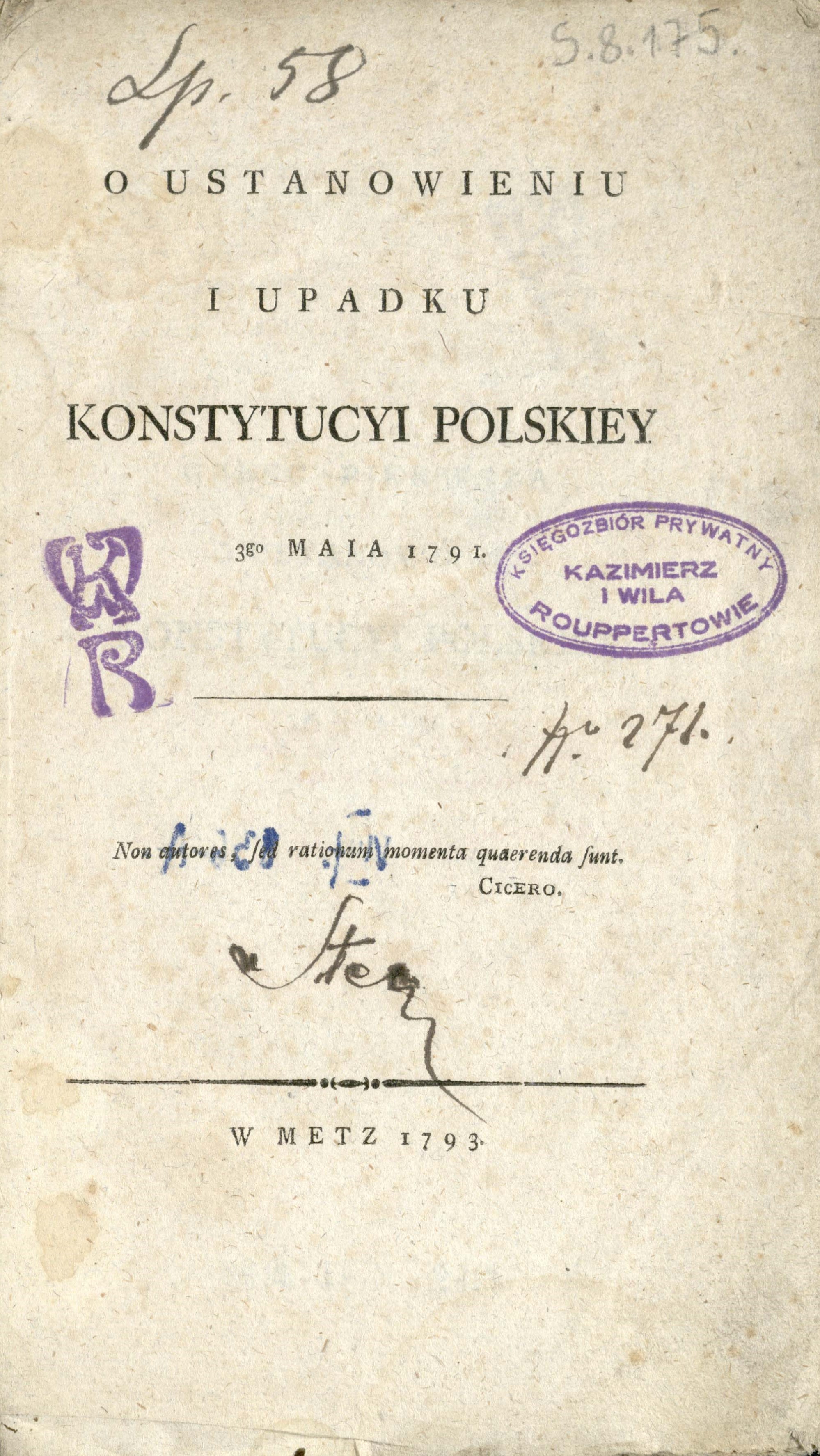WAR AND DOWNFALL
On 27th April 1792, in Petersburg, a group of opponents to the reforms of the Great Sejm, including Stanisław Szczęsny Potocki, Seweryn Rzewuski and the great hetman of the crown Franciszek Ksawery Branicki, signed and swore an act of confederation (created by the Russian civil servant Vasil Popov) through which the confederation participants were asking Russia for military assistance in reinstating the former political system to the Commonwealth.
The predated act of confederation was proclaimed on 18th May in Targowica (a town belonging to Szczęsny Potocki on the territory of the Commonwealth). On the same day the Russian envoy to Warsaw, Jakov Bulchakov, submitted a declaration that the Russian Army had crossed the Commonwealth’s borders.
Greatly outnumbering the Polish forces and with much greater battle experience, the Russian troops quickly penetrated deep into Commonwealth territory. The Lithuanian Army was routed. The Army of the Crown, commanded by Prince Józef Poniatowski, gained several victories as it beat an orderly retreat, e.g., in the battle of Zieleniec on 18th June, which Stanisław August honoured by establishing the Virtuti Militari order.
Aware of the mismatch in their military forces, neither Stanisław August, nor the Sejm leaders believed the war could be won. They treated warfare rather as a display of resistance which was supposed to assure a better negotiating position with Russia. Empress Catharine II (Catharine the Great) was offered the hereditary throne of Poland for her grandson, Great Prince Konstantin, in return for retaining some parts of the Four-Year Sejm reforms. Catharine II did not agree to any of the Polish terms, demanding unconditional capitulation and that Stanisław August join the Targowica Confederation, which he did on 24th July 1792.
The Targowica Confederation, after taking power, suspended the legislation of the Great Sejm, and the Grodno Sejm passed an act annulling it all on 23rd November 1793. Based on that act, the Perpetual Council, which was reinstated by proclamation on 14th November 1794, demanded the removal of all materials connected to the “revolutionary Sejm of 1788” from all the offices in the entire country and their delivery to the Perpetual Council’s archive. (Here, they were meant to be destroyed). Gathering the documents took until the outbreak of the Kosciuszko Uprising. Fragments of archives that weren’t destroyed are preserved in the Central Archives of Historical Records in the so-called Lithuanian Metrica collection VII and IX. Among those documents is a two-volume collection of original Sejm acts handed over from the Crown Metrica.

